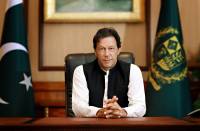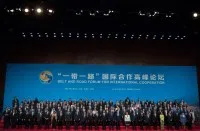When he was elected to the Philippine Presidency in 2016, Rodrigo Duterte promised clean government not only in terms of how he would conduct the daily business of the state but in terms of bringing to justice officials across the board who engage in corrupt activities to the detriment of the nation. As part of his wider war against corruption, over 45 law enforcement officials have been arrested while 199 elected officials and 225 un-elected government workers/civil servants have been arrested for crimes relating to their corrupt involvement in the narcotics trade.
Now, according to President Duterte’s official spokesman Harry Roque,
“Based on the reports, several high ranking officials and employees of the V. Luna Medical Center, Health Service Command of the Armed Forces of the Philippines, undertook anomalous purchases of equipment and engaged in fraudulent transactions, including ghost-purchasing, splitting of contracts to circumvent mandatory bidding processes, and conceiving fictitious suppliers with a total amount of P1,491,570.00”.
Roque further stated that the President was “personally aggravated and angered” when he heard of the squandering of public money by military officials. While Duterte has been a strong supporter of the military and has worked to increase the military budget and procure modern weapons to help fight jihadist and NPA terrorists, he has also stated that no public employees whether police, politicians or military officers will be given any special treatment in the wider battle to purge corruption from every element of The Philippine state.
In purifying the ethos of the military in particular, Duterte is not only helping to create a more effective, honest and transparent fighting force but he may be inadvertently be bringing some of his own lawless enemies to justice.
Thus far, Duterte has remained steadfast in his duty as President and has pledged to continue his war on terrorism and the drug trade that funds it. He has also exercised his role as a head of state to reject the authority of the International Criminal Court, just as the US, China and Russia have done. The majority of ASEAN states also do not subscribe to the ICC’s jurisdiction.
Beyond this, Duterte must remain unrelenting in his anti-corruption drive and use it to purge the state of individuals actively working against the interests of the Filipino people. I previously wrote the following blueprint for taking the Duterte revolution further and in so doing, creating a safer, more prosperous and more proud Philippine nation for future generations.
Transforming The Philippines into a federal republic remains the flagship policy of President Duterte. In order to achieve this, he must combine his federalist proposals with sweeping new anti-corruption laws which will help to create not only a new structure of governance but will help to rid the nation of individuals whose corruption has led to decades of poor policy making and the poor execution of existing policies.
Ever since 2003, Recep Tayyip Erdogan has been the leading figure in Turkish politics, first as Prime Minister and after 2014, as a powerful President. Erdogan and Duterte are very different men as the Turkish leader is an incredibly shrewd political and geopolitical mover who has been able to solidify his power more thoroughly than any Turkish leader since Ataturk. Duterte, by contrast, is a leader who strives not for power but instead, labours to achieve the best possible life for his people before bowing out of power by 2022 at the very latest.
Erdogan’s most lasting legacy to the Turkish republic has been a wholesale reform of governance, combined with a clearing out of old political, judicial, civil service and military elites. Both have been equally necessary in respect of Erdogan achieving his goals. For Duterte, corrupt Senators, party leaders, corporate oligarchs, judicial oligarchs and to a degree some military leadership have proved themselves to be far too close to negative foreign interests. How are Duterte’s opponents a “democratic opposition†when they often obtain their money, orders, speeches and agendas from foreign powers - in some cases a foreign superpower? While Duterte has worked to achieve better relations with Russia and China, he remains very much his own man – true to his humble roots in Davao, in spite of his national leadership position. In this sense, multipolar geopolitical neutrality is a further point of similarity shared between Duterte and Erdogan.
Duterte should not hesitate to up investigations into every politician, judge, corporate oligarch and military officer whose ties to corrupt practices threaten the integrity of national institutions. Those whose foreign ties are too deep should furthermore be forced to resign from their positions. In cases of extreme corruption, prison should also be considered as a means of rectifying a gross injustice against the Filipino nation while in certain cases capital punishment must be a serious consideration in order to deter future generations from repeating the corruption of the past. In all of these areas, Duterte appears to be firmly on the right track.
Some of Duterte’s most loyal supporters, as is the case with Erdogan, have been young activists who previously had no inclination towards politics. In the case of Duterte, his inspiring message of reform, equality, federal realism, clean and safe streets and progressive geopolitical relations have made Duterte appear as a political saviour in a sea of previous leaders who have consistently failed in their duty to the people.
It is this generation of Duterte supporters who hold the key to the future of The Philippines and it is they whose hard work should be rewarded with positions in government and the civil service that had previously been reserved for a small cosmopolitan elite who have served only themselves or in the worst cases, a foreign power.
Duterte has consistently stated that he does not seek to amend existing laws limiting a Filipino President to a single six year term. While these reforms could require more than six years to get through, he should nevertheless begin such initiatives as soon as possible. Furthermore, while some have openly suggested that Duterte revive Proclamation No. 3, a legal device used by Corazon Aquino in 1986 to create a Revolutionary Government, Duterte could use genuine people power to achieve something more long lasting, just as the Turkish President has done.
President Duterte retains incredibly high approval ratings, thus making him de-facto far more democratic than his opponents who chant about democracy but who ironically have little meaningful support among the people. The best way for Duterte to expand his democratic base would be to tackle the corruption holding the country back while giving the people a direct opportunity to express their feelings about their country’s future through referenda on key issues including both the creation of a federal republic and the replacement of the current presidential/congressional system with a unicameral parliamentary system. This is the way forward for Duterte and for future generations of Filipinos who look to the future Duterte seeks rather than the past which Duterte has already departed from.
While Turkey and The Philippines are two very different countries, with different histories and different political systems, both countries were long time US “allies†who under reformist leaders find themselves increasingly at odds with a hegemonic Washington. Erdogan has made Turkey far more independent than it was previously due to his uniquely bold leadership. Duterte could do and is in fact doing something similar with his nation.
In putting all public servants including corrupt police and military on notice, Duterte has proved that the aforementioned path to a less corrupt future is the path that Duterte has consistently taken without fear or favour. His moves against corruption should not only be applauded but he should be encouraged by his popular mandate to take this anti-corruption purge to the furthest logical extent in order to make sure that the mistakes of past leaders no longer retard the progress of future generations.




